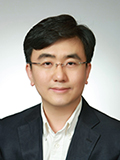

A research team led by Professor Chulhee Choi and Professor Kyungsun Choi of the Department of Bio and Brain Engineering has developed a delivery system that uses light to safely and precisely deliver therapeutic proteins into the body. The system achieves this feat by using light to activate bonding between the proteins and exosomes, nanoparticles that are naturally created within cells.
Due to greater demand for cheaper and more efficient medicine, there has been a recent surge in research on biopharmaceuticals and better ways to effectively deliver therapeutic proteins to target cells. One breakthrough was recognizing nanoparticles as potential vessels for the proteins, as they can easily enter tumors. Because of this, most research conducted on the subject attempted to use nanoparticles with new physical, chemical and optical properties to deliver biopharmaceuticals. However, attempting to make those nanoparticles for effective delivery had its limits. Maintaining the proteins in their active state throughout their journey to the target cell, and suppressing an immune response proved to be difficult. The proteins themselves were hindrances to the process due to their large sizes. Most importantly, there was no guarantee for the process to be safe and toxin-free.
The research team solved all of these problems by manipulating two light-sensitive proteins, CIBN and CRY2, which create bonds with each other when provided a light source. With the new system, the proteins are loaded onto the exosomes by shooting sheets of blue light, whose wavelengths are between 450 and 490 nanometers, to stimulate bonding between the CIBN and CRY2 proteins, which were fused onto the exosomes and therapeutic proteins respectively. This delivery system has two advantages compared to previous methods: loading the proteins is much more reliable than manually inserting refined proteins into the exosomes, and refining the proteins to aid entry into target cells becomes unnecessary, effectively increasing success rate and decreasing costs. By surpassing the limits previous methods were bound to, the new delivery system is expected to form a new paradigm in the field of biomedicine.
Professor Chulhee Choi stated, “Our technology efficiently mounts therapeutic proteins onto the exosomes that are naturally created within our bodies. This groundbreaking innovation in biopharmaceutical technology will become the first that is able to mass produce safe and effective proteins.”

